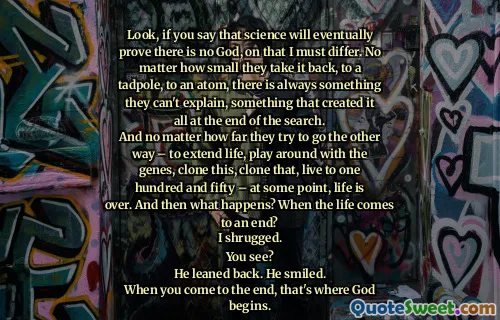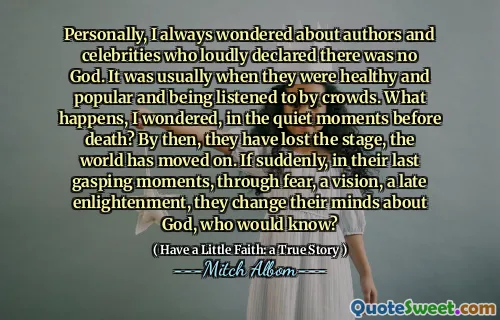As long as God is a man, not a couple, the life of a woman, according to Hanna,is bound to remain as it is now, namely wretched, with woman as the proletarian of Creation, however smartly dressed.
In Max Frisch's "Homo Faber," the character Hanna expresses a deep-seated belief that the persistent male-centric view of the divine perpetuates the suffering and subjugation of women. She suggests that as long as God is depicted as a singular male figure, women will be relegated to a secondary status in society, living lives fraught with hardship and oppression despite their external appearances or achievements.
This commentary reflects a broader critique of patriarchal structures that define both spiritual and societal norms. Hanna's perspective highlights the need for a re-evaluation of these structures to foster true equality and liberation for women, challenging the idea that mere changes in appearance or societal roles can rectify deeper existential inequalities.





